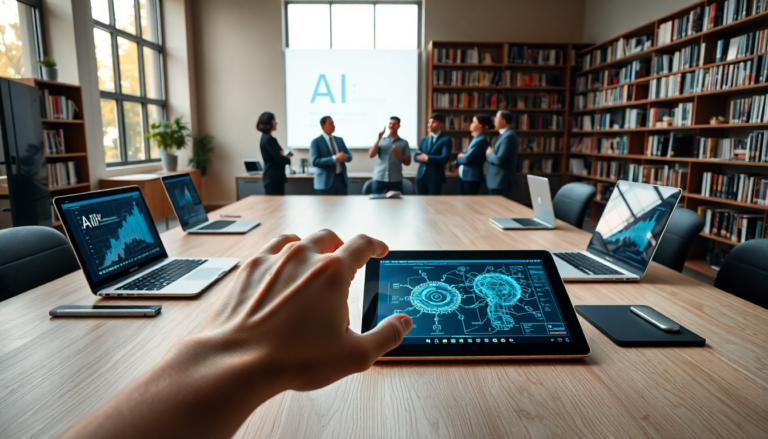Argomenti trattati
Artificial intelligence (AI) has quickly become a game-changer in today’s tech landscape, fueling innovation across a variety of sectors. Its ability to mimic human thought processes—like learning and decision-making—not only transforms industries but also ignites conversations about its ethical use and the potential risks involved. In this article, we’ll explore the fascinating history of AI, highlight key milestones, and discuss the complex challenges it faces in our society today.
Key Milestones and Advancements in AI
The formal journey of AI began in 1956 at a workshop at Dartmouth College. Initial efforts concentrated on building machines capable of human-like reasoning, leading to promising breakthroughs in problem-solving and natural language processing. However, this journey has been anything but smooth; it has seen its fair share of ups and downs, often referred to as AI winters—periods where funding and interest dwindled. A resurgence in interest came around 2012, largely thanks to advancements in deep learning and the power of graphics processing units (GPUs) that significantly boosted computational capabilities.
In recent years, we’ve witnessed an explosion of generative AI technologies, capable of creating and manipulating content in various formats. This has opened doors to applications in everything from autonomous vehicles to smart virtual assistants. But as these technologies evolve, they bring forth pressing ethical questions about their impact on society, including concerns about bias, privacy, and accountability. Isn’t it crucial that we consider these implications as we move forward?
Societal Implications and Ethical Considerations
The swift integration of AI into our daily lives has far-reaching consequences for society. AI systems are increasingly used in decision-making processes in sectors like healthcare, finance, and criminal justice. However, leaning too heavily on these systems can lead to serious ethical dilemmas, particularly around algorithmic bias and the transparency of how decisions are made. For instance, machine learning algorithms trained on biased data can reinforce existing inequalities—how do we ensure fairness in these systems?
Additionally, the use of AI in surveillance and military applications raises alarms about potential misuse by authoritarian governments, underscoring the urgent need for regulatory frameworks that prioritize ethical considerations. As AI technology continues to advance, it’s vital for all stakeholders—governments, technologists, and the public—to engage in thoughtful discussions about its implications, paving the way for guidelines that promote responsible use. Are we ready to take on this challenge together?
The Future of AI: Opportunities and Challenges
Looking ahead, the potential of AI seems limitless, offering exciting opportunities for innovation and efficiency across a range of fields. Yet, with great power comes great responsibility; unchecked AI development could lead to serious consequences. This is where interdisciplinary collaboration becomes essential. Experts from various fields need to unite to tackle the challenges posed by AI while leveraging its benefits for society.
In conclusion, the evolution of artificial intelligence showcases human creativity at its finest. However, it’s crucial to navigate its complexities with care. With the right frameworks in place and a commitment to collaboration, AI can emerge as a powerful ally for positive change—leading us toward a future where technology and ethics intertwine seamlessly.

